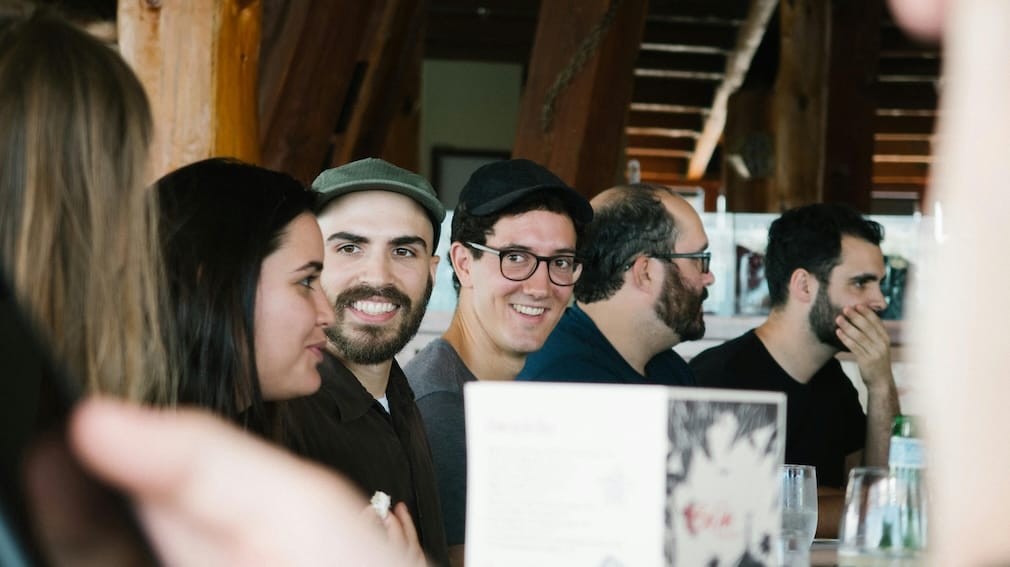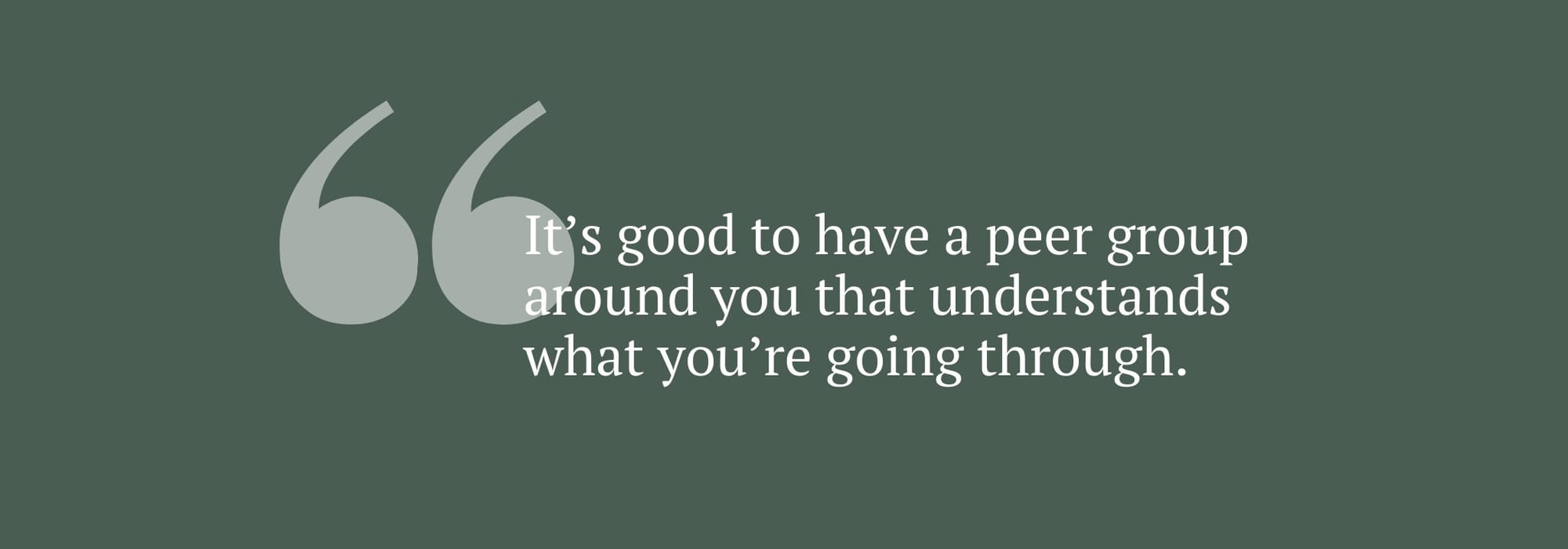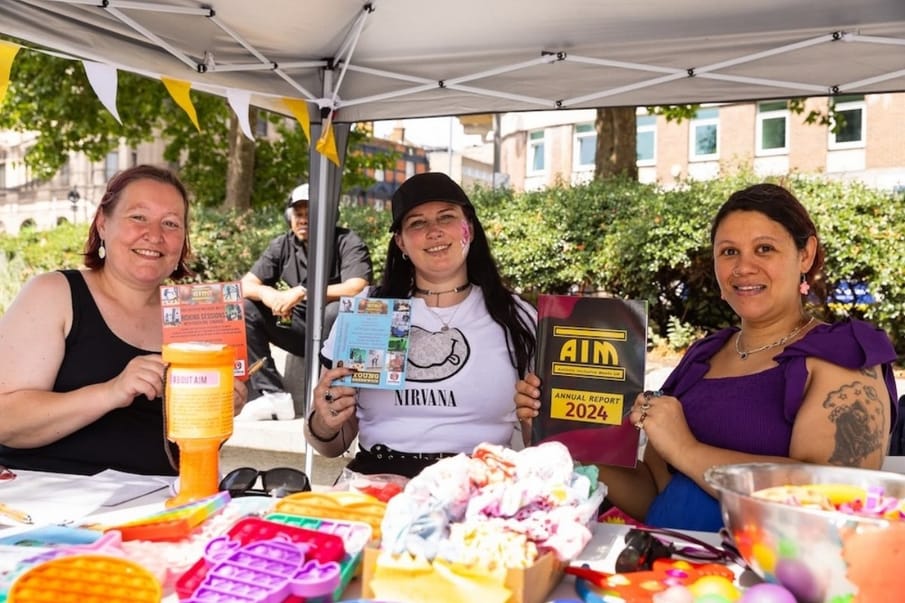We’re putting community initiatives in the spotlight, and today, we’re highlighting Autistic Inclusive Meets
Community spirit is alive and well, as people sit around a table, chatting about a special interest or asking for advice. Groups like these are run by Autistic Inclusive Meets (AIM), a London-based, not-for-profit organisation committed to creating a supportive and inclusive environment for autistic individuals and their families.
Many autistic people experience discrimination, from specific judgements, such as the idea that stimming (making repetitive movements or sounds) can be too distracting, or being excluded for seeming ‘different’, or having alternative styles of communication.
Emma Dalmayne is the CEO of AIM, and an autistic mother to autistic children. Emma took her youngest son out of school at age five due to bullying, and chose to home educate instead. After attending various home-ed meetups, she found the same issues: “It was just the same as mainstream – they weren’t accepting at all,” she explains.
“So, I decided, along with another home educator, that we should start a group where home-ed kids who are neurodivergent could come to, where they’d feel accepted. And that’s what we did.”
They started with a weekly group at a local children’s centre and, spurred on by its success, began another group at a youth club.
Since forming in 2017, AIM has continued to grow, with a range of groups and activities open to all autistic children, young people, and adults – not just those in home education. Activities include baking and cooking, boxing, football, arts and crafts, and other social and support groups.
Crucially, AIM is autistic led. “I think it works a lot better than neurotypicals telling us, ‘This is what we’ve been told will work for you,’” says Emma. Instead, AIM takes a person-centered approach, and follows the child’s lead. This allows the organisers to be aware of potential triggers, and put accommodations in place.
Emma gives the example of the joy of autistic people coming together, and talking about their special interests at sessions – a behaviour that is all too often discouraged in mainstream settings, but can be an important part of who someone is. Similarly, at events like its online arts and crafts sessions, there’s no expectation to be on camera or interact with others, and there’s the freedom to work on your own projects if you wish.

Peer support – where people with similar lived experiences come together – can be a particularly powerful form of community. A 2022 study, published in the journal Autism, found that autistic peer support groups can help people feel comfortable making new connections, developing their identity, and sharing useful strategies. Being part of a community who understand, Emma says, is life changing. “It gives confidence. And you don’t feel like the odd person out.”
Autistic people can sometimes face barriers around making friends. As noted in the Review Journal of Autism and Developmental Disorders in 2022, this can include the challenge of trying to conform to neurotypical social norms – something that can be exhausting, and lead to anxiety.
William Vanderpuye is a full-time social worker, who’s also a director at AIM. “Witnessing the positive impact of AIM’s services – whether it’s seeing individuals find friendship and support at a meet-up, gaining confidence through a workshop, or knowing that our advocacy is leading to greater understanding – is incredibly rewarding,” William says.
“It’s a place where neurodiversity is not just tolerated, but celebrated and understood, where positive images of autism are propagated and perpetuated,” he adds.
Jemma Whitelock is neurodivergent, and has volunteered for AIM for a year: “I loved how my child could be himself, and that I wasn’t judged as a parent for the things I had been through in the past – that was very important to me.”
There’s a strong sense of solidarity and community that comes from being around people who understand what it’s like to be autistic, and the barriers and discrimination that autistic people can experience. “AIM is mine and my children’s safe place,” says Jemma. “AIM really is a wonderful place to be a part of, as a neurodivergent mum to neurodivergent children. This has made me so much more confident as a parent and person.”
After experiencing the value of their work first-hand, Jemma now regularly volunteers with AIM. This includes everything from supporting a sensory play group to using her professional knowledge from working as a learning support assistant to help parents with things like applying for educational support, and giving advice on tribunals and appeals.

William values how AIM supports all age groups. “Autistic adults are a demographic that’s often forgotten when it comes to autistic people’s services, as people generally think of children when setting up an organisation to support autistic people,” he explains.
Many people are diagnosed as autistic as an adult, and research suggests that there are many autistic adults who haven’t been officially diagnosed. Research from The Lancet Regional Health Europe, for example, estimated that there are approximately 750,000 undiagnosed autistic people aged 20 and above in England.
“For an adult, it’s a lot to take on board when you’re diagnosed,” says Emma. “There’s a lot of sadness for yourself as a child because you weren’t accommodated properly. And there’s a lot of resentment, a lot of anger, and then self-acceptance. It’s good to have a peer group around you that understands what you’re going through. It’s great for an adult who just hasn’t felt accepted, and to say to them: ‘We’re here for you.’”
Connecting with others like this can be a transformative moment. As Jemma says: “Everyone at AIM understood me and my child. Finally, I wasn’t alone.”


Comments